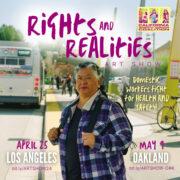FOLLOWING the postings and counter-postings on Facebook of folks whom I regard as righteous and intelligent, I have frankly begun to sense that there is a new standard of right and wrong that has emerged in the Philippines with Rodrigo Duterte’s assumption of the presidency.
Duterte has been widely criticized, not only by the local political opposition but by world leaders and international media for his bloody war on drugs. Even Senator Panfilo Lacson, who cannot be classified as “yellow” – a pejorative, that once referred mainly to the Aquinos and the Liberal Party but now includes anyone who is seen as anti-Duterte – has just “sounded the alarm…over daily killings in the country” attributed to the campaign against drugs.
Said Lacson on Twitter, “For someone like me who’s not a human rights advocate to get worried about the daily killings, something very wrong must be going on.”
Anyone familiar with the track record of Lacson as a former chief of the Philippine National Police and as an officer of the dreaded Metrocom Intelligence and Security Group (MISG) must take his comments seriously.
And yet, supporters of Duterte, including those whom I have known to be morally and ethically straight, have deftly sidestepped the issue of the killings – now going into the thousands and counting – by pointing out the devastation caused by the drug menace and the dire consequences if Duterte were to be deposed and Vice President Leni Robredo were to assume the presidency.
Wrote one Manila columnist who apparently believes that the Philippines is a narco-state or one under the thumb of drug lords:
“So let us call a spade a spade. We are a narco-state, no quibbling there. Those in denial may probably want to embrace the ‘EJK’ argument. I won’t because no state sanctions what is deemed extra-judicial. But I do recognize that there are killings from police operations and that is murder (if there is intent) or homicide. Both crimes are in our Revised Penal Code. If there is a country waging a fight against illegal drugs and has an immaculate slate in terms of the number of persons killed, please let us know. That model can be studied and probably implemented in our country, if only to stress the obvious that there is none.”
One gets the impression that, in the Philippines, there is no other option between the devil and the deep blue sea or between Duterte and Robredo.
As far as this opinion maker is concerned, killings resulting from “police operations” are happening — it is a given — but she considers them the price to be paid in the fight against illegal drugs.
The argument actually sounds reasonable if one paints a broad portrait of nameless suspects — drug lords, pushers, users — who needed to be “killed dead” like insects in the Flit commercial. But if one were to take the trouble to go through the body count and identify the fatalities, you would realize that each was a human being with families and loved ones grieving over their summary liquidation.
Indeed, it is so easy to generalize and dismiss the fatalities as part of the “just war” — unless, of course, you happen to be a relative or a dear friend of one or a couple of the victims. After all, who bothers about the hundreds liquidated by Rambo in his movies?
Yet the columnist’s acknowledgment that there have been police killings — and some could be considered murder — appears more reasonable than the conclusion drawn by the Senate Committee on Justice and Human Rights and the Committee on Public Order and Dangerous Drugs after a brief inquiry chaired by Senator Dick Gordon.
The report concluded that allegations of “extra-judicial killings” attributed to the Duterte administration and, by extension, to Duterte himself, had no basis in fact. Gordon apparently drew his committee’s conclusion because of the seemingly unreliable testimony and allegations of self-confessed Davao Death Squad member, Edgar Matobato.
This conclusion was drawn after only six Senate hearings, which had ostensibly been stymied by the withdrawal of Matobato from the hearings by Senator Antonio Trillanes IV.
Apparently, Gordon and his committee members gave no weight to a report by Human Rights Watch in 2009 to the effect that “there were 124 targeted killings in Davao City from 1998 to 2008 alone, during Duterte’s term as mayor.” A 103-page report included accounts of people with insider knowledge of the so-called Davao Death Squad, the victims’ families, witnesses, lawyers and local government officials.
But for some fantastic reason, the Gordon committee concluded that there was no such thing as a Davao Death Squad, based on Matobato’s inconsistencies.
I’m sure that Gordon is familiar with the term “due diligence.” That was sorely lacking in the efforts of his committee. Knowing Gordon to be a former Procter & Gamble brand manager and an efficient public official, I can only guess that, after submitting that report, he is embarrassed when he looks at himself in the mirror in the morning.
That kind of sloppy work is not worthy of a person of his caliber.
Apparently, Gordon and his team did not even bother to recall the instances when Duterte boasted, during the presidential campaign, about personally killing some criminals while mayor of Davao City.
Worse yet, Gordon and company have not even taken note of the findings of the National Bureau of Investigation (NBI) after a probe much more thorough than Gordon’s into the killing of Albuera, Leyte Mayor Rolando Espinosa and a fellow inmate, Raul Yap, inside a jail cell.
Elements of the PNP had justified the shooting of the two because they had allegedly drawn guns at the police officers who were trying to serve a search warrant on them.
In an official statement, the NBI announced, “After conducting an exhaustive investigation of the incidents surrounding the killing of Mayor Espinosa and Yap, the NBI concluded that the testimonies of several witnesses had disputed the claim of an alleged shootout between the CIDG Operatives and Inmates Mayor Espinosa and Raul Yap but a ‘rub out.’’”
In other words — in case Senator Dick Gordon fails to understand the meaning of the NBI findings — the killing of Espinosa and Yap was as “extra-judicial” as a Webster dictionary could possibly define it.
And how can that killing to connected to the President of the Republic of the Philippines? Simple. Duterte has declared his support for the accused PNP officers and has dismissed the veracity of the NBI findings.
As quoted by the media, Duterte declared in a speech in Mandaluyong City:
“I will not allow these guys to go to prison, even if the NBI says it was murder. After all, the NBI is under me, the Department of Justice is under me.”
In typical Duterte-speak (where he routinely contradicts himself), he said, “But to tell you, I do not interfere. They have findings, good. File the case but I won’t leave the policemen implicated in the killing.”
And in a perversion of his oath of office, Duterte, in effect, declared that his loyalty to the country ends where his loyalty to his policemen begins: “Whatever the police say, that’s the truth for me. The NBI said it was murder. The police said, ‘Sir, he fought back.’ I believe the police. Why would I sacrifice the police for that?”
And in his now familiar Duterte bluster (shades of riding a jet-ski to the Spratlys to confront the Chinese), Duterte declared: “As a matter of fact, I’m ready to go to jail for them, no problem.”
It may not be a problem for Rodrigo Duterte, but it certainly is for the people of the Philippines. That’s the macho language of a gang boss rather than the president of our hapless republic.
Do we really need a gangster for a president? ([email protected])




